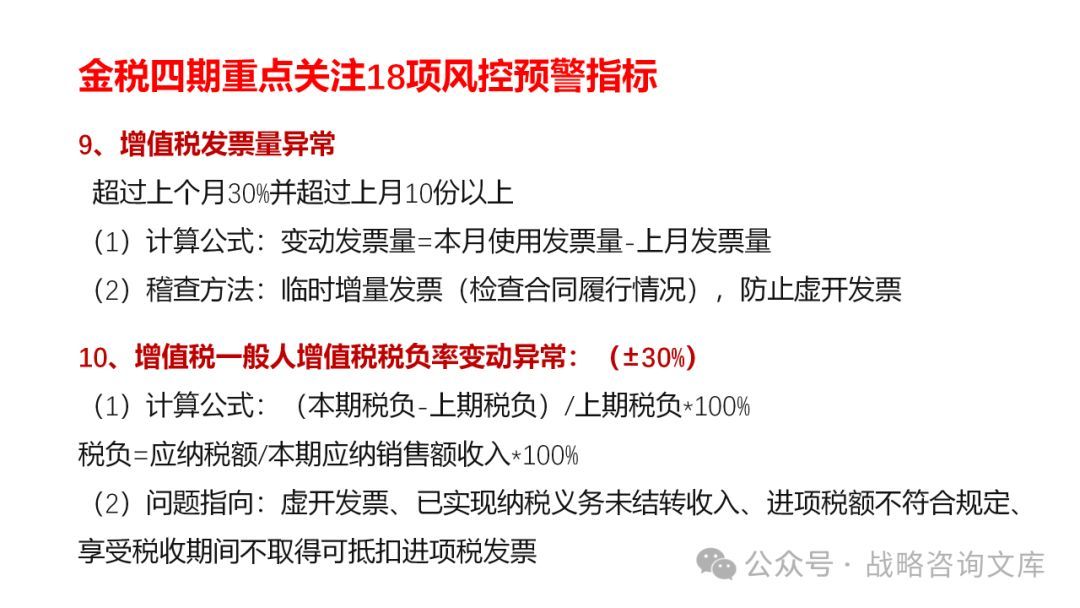39.组合总和
Java
class Solution {
List<List<Integer>> result = new ArrayList<>();
LinkedList<Integer> path = new LinkedList<>();
public List<List<Integer>> combinationSum(int[] candidates, int target) {
Arrays.sort(candidates);
backtracking(candidates,target,0,0);
return result;
}
public void backtracking(int[] candidates,int target,int sum,int startIndex){
if (sum>target){
return;
}
if (sum == target){
result.add(new LinkedList<>(path));
return;
}
for (int i = startIndex; i < candidates.length && sum + candidates[i] <= target; i++) {
path.add(candidates[i]);
sum += candidates[i];
backtracking(candidates,target,sum,i);
sum -= candidates[i];
path.removeLast();
}
}
}
回溯方法:backtracking
public void backtracking(int[] candidates, int target, int sum, int startIndex) {
if (sum > target) { // 剪枝:如果当前和已经超过目标,直接返回
return;
}
if (sum == target) { // 找到满足条件的组合
result.add(new LinkedList<>(path)); // 保存当前路径到结果
return;
}
for (int i = startIndex; i < candidates.length && sum + candidates[i] <= target; i++) {
path.add(candidates[i]); // 做选择:将当前数字加入路径
sum += candidates[i]; // 更新路径总和
backtracking(candidates, target, sum, i); // 递归,允许重复选择当前数字
sum -= candidates[i]; // 撤销选择:恢复之前的状态
path.removeLast(); // 从路径中移除最后一个数字,回溯
}
}
逻辑解释
- 递归终止条件
sum > target:当前路径总和超过目标值,停止递归。sum == target:找到一组符合条件的组合,将path复制加入结果。
- 循环递归
- 循环起点:从
startIndex开始,保证每次递归处理当前数字及其后续数字。 - 条件:
sum + candidates[i] <= target- 剪枝条件,提前终止无意义的递归。 - 允许重复选择:- 递归调用时仍从
i开始 (backtracking(candidates, target, sum, i)),因此当前数字可以重复加入组合。
- 循环起点:从
- 回溯过程
path.add(candidates[i])和path.removeLast():分别表示“选择当前数字”和“撤销选择”。sum += candidates[i]和sum -= candidates[i]:动态更新当前路径的总和。
40.组合总和II
树层去重一个数完整搜完一边,另一个重复的数不用搜第二遍
Java
class Solution {
List<List<Integer>> result = new ArrayList<>();
LinkedList<Integer> path = new LinkedList<>();
public List<List<Integer>> combinationSum2(int[] candidates, int target) {
Arrays.sort(candidates);
boolean[] used = new boolean[candidates.length];
Arrays.fill(used,false);
backtracking(candidates,target,0,0,used);
return result;
}
public void backtracking(int[] candidates, int target,int sum,int stateIndex,boolean[] used){
if (sum>target){
return;
}
if (sum == target){
result.add(new ArrayList<>(path));
}
for (int i = stateIndex; i < candidates.length; i++) {
if (i>0&&candidates[i-1]==candidates[i]&&used[i-1]==false){//重要,按层去重
continue;
}
path.add(candidates[i]);
sum += candidates[i];
used[i] = true;
backtracking(candidates,target,sum,i+1,used);
path.removeLast();
sum -= candidates[i];
used[i] = false;
}
}
}
关键点
- 数组排序:
Arrays.sort(candidates);
对数组 candidates 进行排序是为了方便去重和剪枝。排序后,相同的元素会相邻,可以通过简单的逻辑避免重复。
- 去重逻辑:
if (i > 0 && candidates[i - 1] == candidates[i] && used[i - 1] == false) {
continue;
}
这一部分用于按“层”去重。如果当前元素与前一个元素相同,且前一个元素在当前层没有被使用(used[i - 1] == false),就跳过这个元素,避免重复组合。
- 递归与回溯:
- 递归条件:递归深入到下一层(选择下一个数字)。
- 回溯操作:撤销上一步的选择(移除当前路径中的数字,恢复
sum和used的状态)。
代码逻辑
全局变量
List<List<Integer>> result = new ArrayList<>();
LinkedList<Integer> path = new LinkedList<>();
result:存储最终的所有满足条件的组合。path:存储当前递归路径上的数字组合。
主函数
public List<List<Integer>> combinationSum2(int[] candidates, int target) {
Arrays.sort(candidates); // 排序,方便去重和剪枝
boolean[] used = new boolean[candidates.length]; // 记录每个数字是否使用
backtracking(candidates, target, 0, 0, used); // 初始状态
return result;
}
- 对数组排序后,初始化
used数组为false。 - 调用回溯函数
backtracking开始寻找组合。
回溯函数
public void backtracking(int[] candidates, int target, int sum, int stateIndex, boolean[] used) {
if (sum > target) {
return; // 剪枝:当前组合和大于目标值
}
if (sum == target) {
result.add(new ArrayList<>(path)); // 找到符合条件的组合,加入结果集
return;
}
for (int i = stateIndex; i < candidates.length; i++) {
if (i > 0 && candidates[i - 1] == candidates[i] && used[i - 1] == false) {
continue; // 去重:跳过相同的元素
}
path.add(candidates[i]); // 添加当前数字到路径
sum += candidates[i]; // 更新路径和
used[i] = true; // 标记当前数字为已使用
backtracking(candidates, target, sum, i + 1, used); // 递归到下一层
path.removeLast(); // 回溯,撤销选择
sum -= candidates[i]; // 恢复路径和
used[i] = false; // 恢复使用状态
}
}
重点逻辑
- 递归结束条件:
- 当
sum > target时,直接返回,表示当前路径无效。 - 当
sum == target时,说明找到一个符合条件的组合,将其加入result。
- 当
- 去重:
if (i > 0 && candidates[i - 1] == candidates[i] && used[i - 1] == false) {
continue;
}
按“层”去重。只有当前层的数字和前一个数字相同时,才需要检查是否跳过。
3. 递归与回溯:
- 递归:将当前数字加入路径后,继续递归处理下一层。
- 回溯:撤销选择,包括移除路径中的数字,恢复 sum 和 used 的状态。
131.分割回文串
Java
class Solution {
List<List<String>> result = new ArrayList<>();
LinkedList<String> path = new LinkedList<>();
public List<List<String>> partition(String s) {
backtracking(s,0);
return result;
}
public void backtracking(String s,int startIndex){
if (startIndex >= s.length()){
result.add(new ArrayList<>(path));
return;
}
for (int i = startIndex; i < s.length(); i++) {
if (isPalindrome(s,startIndex,i)){
String a = s.substring(startIndex,i+1);
path.add(a);
}
else {
continue;
}
backtracking(s,i+1);
path.removeLast();
}
}
boolean isPalindrome(String s,int start,int end){
for (int i = start,j = end; i <j ; i++,j--) {
if (s.charAt(i)!=s.charAt(j)){
return false;
}
}
return true;
}
}
全局变量
List<List<String>> result = new ArrayList<>();
LinkedList<String> path = new LinkedList<>();
result:存储所有满足条件的分割方案。path:当前递归路径,表示当前的分割方案。
主函数
public List<List<String>> partition(String s) {
backtracking(s, 0); // 从索引 0 开始划分字符串
return result;
}
- 调用回溯函数
backtracking从字符串的第一个字符开始分割。 - 返回所有满足条件的方案。
回溯函数
public void backtracking(String s, int startIndex) {
if (startIndex >= s.length()) {
result.add(new ArrayList<>(path)); // 如果遍历到字符串末尾,记录当前路径
return;
}
for (int i = startIndex; i < s.length(); i++) {
if (isPalindrome(s, startIndex, i)) { // 判断从 startIndex 到 i 的子串是否是回文
String a = s.substring(startIndex, i + 1); // 取出当前回文子串
path.add(a); // 加入路径
} else {
continue; // 如果不是回文,跳过本次循环
}
backtracking(s, i + 1); // 递归处理剩下的部分
path.removeLast(); // 回溯,移除最后一个子串
}
}
- 终止条件:- 当
startIndex超过或等于字符串长度时,说明已经分割完毕,记录当前路径。 - 递归逻辑:- 从
startIndex开始,尝试分割到每个可能的位置i。- 如果
s[startIndex...i]是回文,则加入路径,并递归处理s[i+1...end]。 - 递归返回后,回溯移除当前子串。
- 如果
判断是否为回文
boolean isPalindrome(String s, int start, int end) {
for (int i = start, j = end; i < j; i++, j--) {
if (s.charAt(i) != s.charAt(j)) {
return false; // 如果两端字符不相等,不是回文
}
}
return true; // 如果所有字符都相等,是回文
}
- 双指针法,检查从
start到end的子串是否为回文。 - 左右两端字符逐步比较,如果有任意一对不相等,则不是回文。
算法流程
- 从字符串
s的第一个字符开始,尝试划分每个可能的回文子串。 - 如果找到一个回文子串,加入当前路径,并继续递归处理剩余部分。
- 当划分到字符串末尾时,将当前路径记录为一种有效方案。
- 回溯时移除最后一个子串,尝试其他划分方式。



















